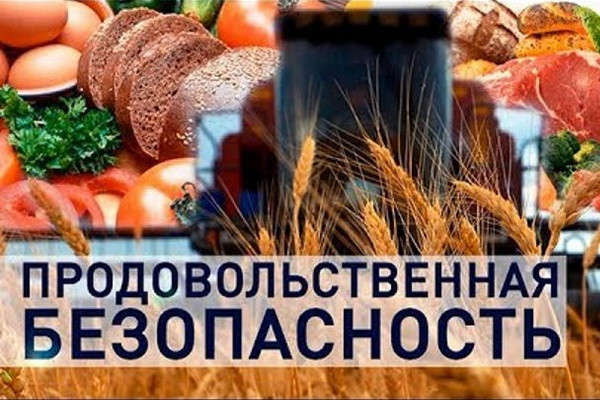
Success in solving problems is in joining forces
Tashkent, Uzbekistan (UzDaily.com) -- As a person who in the recent past was involved in solving the problems of the country’s food security and as a scientist whose scientific interests are in contact with this topic, it is quite understandable and deeply impressed that the President of the Republic of Uzbekistan Shavkat Mirziyoyev uses every international platform to raise issues of food security, to join forces in solving this difficult task.
And this time, at the Consultative meeting of the leaders of the Central Asian countries in Issyk-Kul, the leader of our state proposed to develop a comprehensive scheme for the guaranteed provision of the population with a wide range of food products.
The issues of food security, ensuring the access of the population of each country to food for their normal life in recent decades have become the number one topic in the world.
And if a few years ago, when the UN defined the "Sustainable Development Goals until 2030" the fight against hunger was defined as a priority, but now it has become a super priority, super relevant. The world on the way to achieving it not only did not move forward, but rolled back. First, the pandemic with its unprecedented dimensions, ongoing local wars and conflicts, high inflation, and finally, the events that began in February this year in Ukraine and affected the whole world crossed out modest achievements, created obstacles that will require a lot of effort and time to overcome.
At first glance, the solution of food security problems is not difficult. Sow more, receive more products, deliver more to the consumer’s table. But to sow more means that new areas of land are needed, which must be provided with irrigation water.
Do the countries of the region have enough of these resources?
According to experts’ calculations, the optimistic option is that on the lands in agricultural circulation and their water supply at the level of the average long-term years, it is possible to increase food production and come closer to sanitary standards in terms of crop production. But this is taking into account a stable population. However, the population is growing.
According to UN data, the population of Central Asian countries increases by 1 million people annually. (by 1.66%). The average age of the region’s population is 27.6 years. The region is very young. The needs of young people for foodstuffs are incomparably higher than those of older people.
At the same time, for various reasons, including poor management, urbanization, lack of water, arable land is shrinking. Thus, over the past 15 years in Uzbekistan, the area of irrigated land per capita has decreased by 24%. And these are fertile lands that can provide a rich harvest. This situation is also typical for other countries in the region.
Other challenges to this task are caused by climate change. According to the calculations of the World Bank experts, for the conditions of our region, the impact of temperature and precipitation will reduce the yield of cotton, wheat, tomatoes, and potatoes by 6-10%.
Countries can cope with these problems by joining their efforts. Yes, and the natural-geographical factor requires this: 70% of surface and underground water sources in the region are of a transboundary nature.
But, most importantly, we need new approaches, a new worldview to overcome these challenges. By combining the efforts of countries, based on the achievements of science and best practices, providing an integrated and systematic approach covering the entire cycle of production, storage, processing, transportation, wholesale and retail trade of food products, the goal can be achieved.
Chief Research Fellow of MICA,
Doctor of Economic Sciences Nosirjon Yusupov